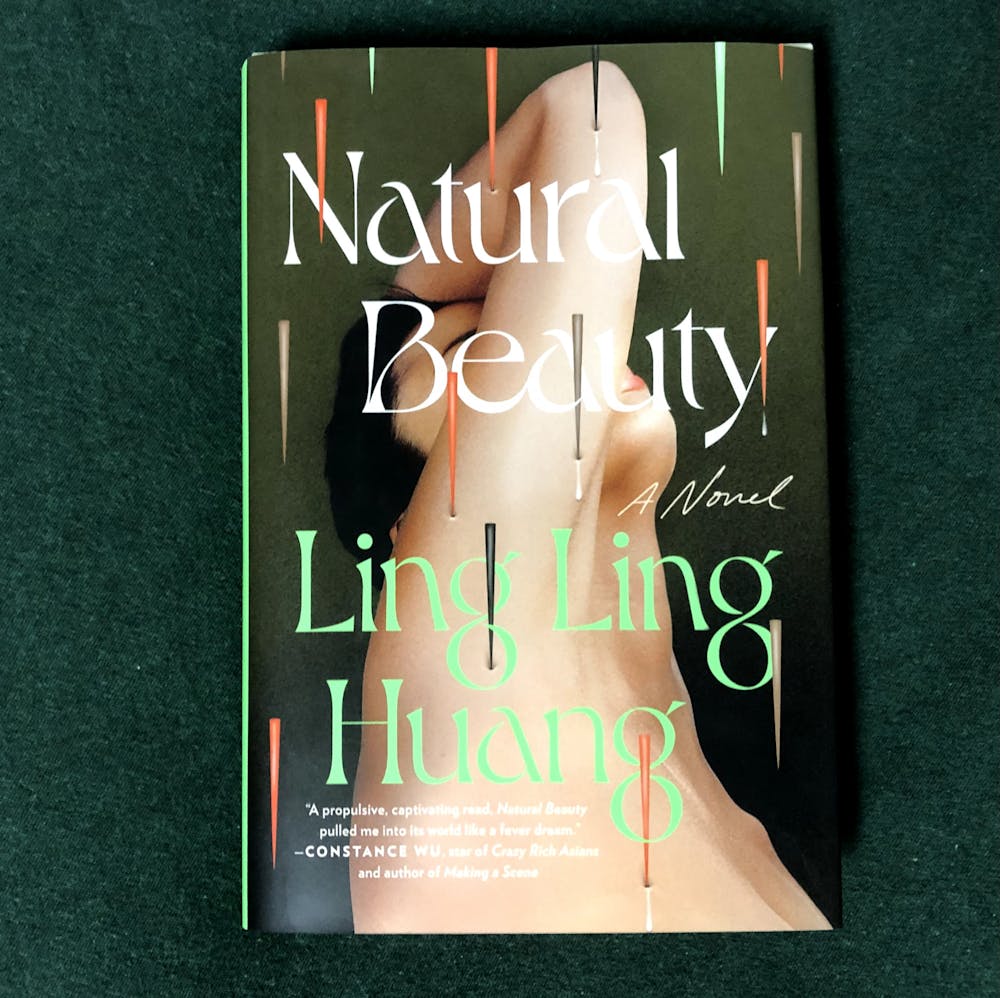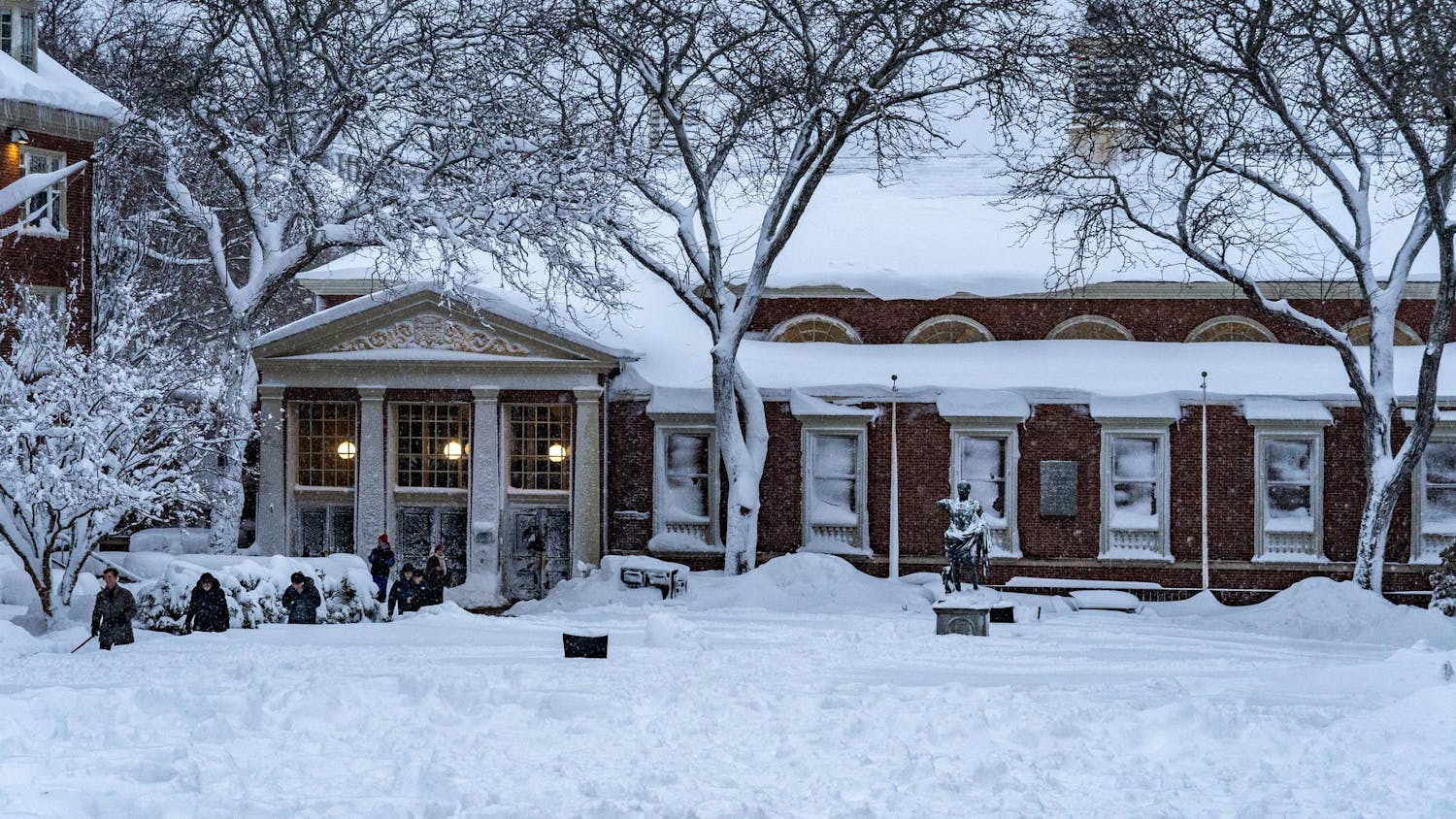From Kim Kardashian’s vampire facial to Gwyneth Paltrow’s vaginal steaming, a fixation on anti-aging and beauty has inspired a wave of inventive procedures that are questionably described as “self-care.” Ling Ling Huang highlights the absurdity of these practices in her debut novel “Natural Beauty” released April 4. The book is set to be adapted into a television series produced by Constance Wu and Drew Comins.
“Natural Beauty” follows a young woman who is forced to navigate the unfamiliar sphere of exorbitant wealth and incessant consumerism. While her parents — who immigrated to the United States from China during the Cultural Revolution — struggled to make ends meet, they raised her in a household rich with music. The protagonist’s piano talent earns her the opportunity to study at a prestigious music conservatory in New York City, where relentless racism and bullying from her peers leave her with poor self-esteem and a desire to assimilate. But when her parents are severely injured in a car accident, she abandons her love for music and begins to work long hours to pay for their medical bills and care facility.
One day, the novel’s main character is recruited to start working at Holistik, a high-end, innovative beauty company whose services are akin to something from a sci-fi movie. Though Holistik’s eco-friendly mission and focus on the health of its employees make it seem like a dream job, readers soon begin to suspect that something sinister lurks beneath the surface.
“Natural Beauty” is rife with social commentary. Huang takes clean-living movements to the extreme, warning readers against being distracted by eco-friendly buzzwords concealing a company’s true environmental practices. Holistik relies on animals, like pore-cleansing slugs and hair-cleaning mites, to power their products. While the company touts this technology as natural, it is clear that their methods are a creative form of animal exploitation.
Huang also shines a harsh spotlight on the beauty industry. Her examples of Holistik’s bizarre procedures highlight how modern society’s obsession with appearances can be excessive. She excellently criticizes frivolity by juxtaposing the lavish lifestyles of Holistik’s wealthy clients with the main character’s financial struggles.
The novel’s most powerful message, however, lies in its exploration of the destructiveness of assimilation. The only name of the main character revealed to the reader, Anna, is assigned to her by Holistik, which she is encouraged to take because her real name was too “foreign” for their customers. As she continues to use her Holistik supplements and beauty products, her appearance begins to transform. She loses her mother’s dark hair and her father’s nose, and eventually, she becomes nearly indistinguishable from the other women she works with. Huang provides a moving visualization of how assimilation can result in the dissolution of one’s culture and background.
Creativity and vivid descriptions make “Natural Beauty” jump off the page. Huang crafts scenes so grotesquely detailed that they make readers’ skin crawl. But other aspects of the novel fail to match the standards established by this imaginative writing.
The characters are highly unlikeable, even the ones who do not support Holistik’s questionable practices. The main character’s friends lack a level of depth that would build empathy for them and cause readers to become invested in their fates. The main character herself is difficult to appreciate. Though her complexity and imperfections are meant to drive the conflict of the story, she fails to be compelling. While flawed leads can round out a narrative, her faults feel more like annoying qualities than features that contribute to the plot.
Though Huang effectively builds an eerie and disturbing atmosphere, the book falls short of its designation as horror fiction. Suspense is delivered periodically throughout the story, but the intended elements of foreshadowing and shock land predictably. There are few moments where readers feel on the edge of their seats, afraid to see what might be on the next page.
“Natural Beauty” functions as a thoughtful reflection of the human desire to fit in while paradoxically standing out, but it lacks the thrilling story arc that it had the potential to achieve.
Daphne is an Arts & Culture writer from Austin, Texas. She is planning on studying International and Public Affairs. Her passions include cats, running and Phoebe Bridgers.





